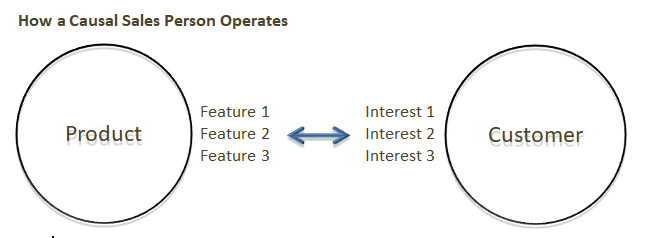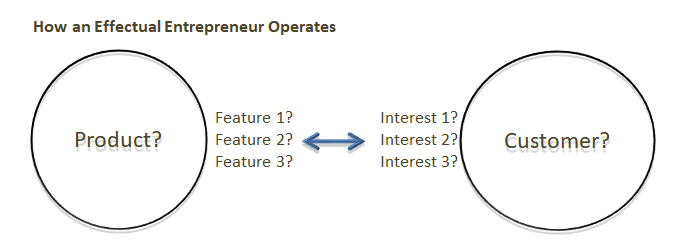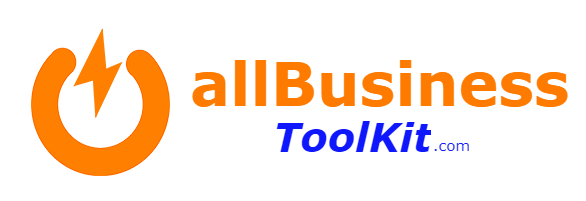Have you ever wondered why some people are more entrepreneurial than others are. Academics suggest that entrepreneurs are more effectual within how they reason things in life. However, to understand how effectual thinkers operate, you will need to understand their causal counterpart.
Causal thinking and effectual thinking are instinctive styles of thought and reasoning that are particularly applicable for solving problems. Causal thinkers have a goal and objectively assess their resources, by which they plot out plan to reach their goal. Effectual thinkers do not begin with clearly defined goal; rather, they allow the goal to emerge organically. Effectual thinkers have an idea, and go on a journey to discover all the pieces that will make the idea work. They do not have a strict plan to follow but they will take things to try to make connections between things to make their idea come to life.
In this article, I will go through both causal and effectual thinking and how these relate to someone trying to set up a new business venture.
1. What Is Causal Thinking For An Entrepreneur
You can understand what causal thinking is by defining what a cause is. A cause is an action, or movement that produces an effect.
In entrepreneurship, we refer to causal thinking as a goal or aim in which we act on that leads to customers giving you money. For instance, the cause is setting up a new business and the effect is customers giving you money.
By being causal or have, causal thinking you will be questioning everything, and asking yourself ‘why?’ something happens, or whether it is likely to happen.
By asking why, you are looking for a cause. For example, our new business is not making sales… Why is this?
…This can only mean we need to do more research on what our customers want from our product. By asking why we can come to a rational conclusion and decide where it is we need to improve, in our business.
2. Why Is Causal Thinking Important?
Causal thinking is connecting events and outcomes to help define a problem in a logical manner. This usually involves of looking back at the past and the previous actions to make predictions for the future.
This means by thinking causally can tell us who or what is responsible for a particular event or outcome.
More so, if our business is failing then by finding the cause we know why it is failing .
3. What Is Effectual Thinking
Effectual thinking is slightly different from causal thinking because we are looking at the means. By means we are talking about resources, skills and networks, we have. We then discover what the different outcomes that could accrue by utilizing those means.
Effectual thinkers look to create a new cause that results in new opportunities.
Columbus tells us “Effectual thinkers are like explorers set out on a voyage into uncharted waters”.
For Example, you look at your skills, experience and education, then you see what you can create that adds value to someone else’s life.
The process of searching for new opportunities will lead to a different end goal that was not ever able to think of from the beginning.
4. Why Is Effectual Thinking Important?
In the early stages of starting your business resides in the effectual thinking process because no business plan survives first contact with customers.
Furthermore, the activities of effectual thinkers allow us to be creative and deliver something new to the market. This will spear the competition and put you ahead in the market you have just created.
Saul Bass tells us that, “From looking at one thing and seeing another. From fooling around and playing with possibilities, spectating, changing, pushing, and pulling transforming. And if you’re lucky you come up with something that’s maybe worth saving, using and building on. That’s where the game stops and work begins”.
In the early stages of business there is a need for a effectual mind set as they is a constant rise of uncertainty and when there is a lot of uncertainty, you CAN NOT stick to a plan.
The effectual entrepreneur loves the discovery of uncertainty when a new problem arises as it means opportunity.
Successful entrepreneurs approach uncertainty very differently. They live by the motto Ready – fire – Aim. This is because if you spend too much time aiming you will never actually see all the good things than if you just fire.
5. How To Be Effectual
The first objective for effectual entrepreneurs is discovering a potential niche in the market.
The Steve blank case study shows the importance of being effectual to find your niche, and he says it is as simple as getting outside the building. By this, he means acknowledging potential customers and speaking with them face-to-face.
By going out talking to customers are experiential, hands on and immediate with intense feedback. Nevertheless, from experience a lot of this we information collect can lead the effectual thinker to discover just what your potential audience is looking for.
More formally, you will want to carry out non-formal interview or discussions. The interviewing process itself is very important. However, it is important to understand that everyone is different, more so the levels of receptiveness and areas of resistance are different.
You simply want to find those hidden emotions and motivations you’re trying to understand.
Below I will discuss the THREE tips to be mindful of when conducting interviews…
5.1 Style Of Questions
So when conducting an interview you will need to have an idea of the type of person you want to speak to and the types of questions that are useful.
It is important to note that some people may close up by asking more direct questions and not give any information. Meanwhile, other people need a push so being firm would be most effective.
Interviewing style generally is; demur, scholarly, layback to draw people to them, confrontational and abrupt. The approaches must be adjusted accordingly to the sense of with receptiveness and areas of resistance of that individual.
5.2 Socratic
Open and neutral questions or a statements which refer to using the 4 W’s What, Where, Who, When but not Why. Because, asking a person why they do something causes them to do misleading and rational information, this is because they get defensive moving them away from thinking about there thinking and perception. The intension is to draw them out.
“Please tell me more about that?”
“What is it about that product or service that makes you feel the way you feel?”
Validate the person who is being interviewed; make the person feel safe to have and then reveal the emotions that underline their behavior.
5.3 Show a General Interest
If you show a general interest in the person and what they have to say then people will be more willing to give more information.
This is the best way for drawing a person out, constantly asking questions, probing and inviting people to share but on the extreme rarity ask why.
6. Case study – Good Mistakes Of Being Effectual
“One lovely summer day in 1948, a Swiss amateur mountaineer and inventor decided to take his dog for a nature hike. The man and his faithful companion both returned home covered with burrs, the plant seed-sacs that cling to animal fur in order to travel to fertile new planting grounds. The man neglected his matted dog, and with a burning curiosity ran to his microscope and inspected one of the many burrs stuck to his pants. He saw the entire small hooks the enabled the seed baring burr to cling so viciously to the tiny loops in the fabric of his pants. “I will design a unique, two sided fastener, one side with stiff hooks like the burrs and the other side with soft loops like the fabric of my pants. I will call my invention ‘Velcro’ a combination of the word velour and crochet.”
7. Sales People are Causal Entrepreneurs
After working as a sales person, it came to my attention that salespeople are causal entrepreneurs.
I believe sales people many of the entrepreneurial qualities, and an entrepreneur has to be a sales person at least of the beginning of their venture.
In casual conversation with a prospect, a salesperson will be very creative in getting the prospect interested in the product or service. Throughout the life of the sale, the sales rep is finding ways to get people interested and eventually purchase their product.
7.1 How A Causal Sales Person Operates

A sales man has a product or service with a list of features. They also have a target audience, which they will use certain techniques to make the sales. However, generally the sales person is connecting the target customer’s interests with the product features.
7.2 How An Effectual Entrepreneur Operates

An effectual entrepreneur has a basic idea of their product. They may also have a basic idea which customers they will target. However, they do not know what features are required, because they do not really know the interests of their customer.
This diagram gives a visual representation of what you need to do as an effectual entrepreneur, to try to fill in the gap you may have in your knowledge. Always remembering you are connecting a person’s interest with the features you can offer them.
Conclusion
When setting up a new business it is important to note that surprises are good as it means opportunity.
Effectual entrepreneurs are not caught under peer pressure of stakeholder vision, as they know fair well that the vision will change.
Over time and consistently taking advantage of every opportunity, you will create your own luck. This cannot be taught but learned through experience of being effectual. Acting effectual is the key to reaching intuitive thinking.
Causal thinking, which is taught in business schools and other disciplines, is familiar to most of us.
In established businesses all the uncertainty and discovery has been recognized and so Causal implementations can be adopted.






Your internet site has superb content. I bookmarked the website
Hi thank you very, I have put many months of hard work grafting so it means so much to hear you say that!